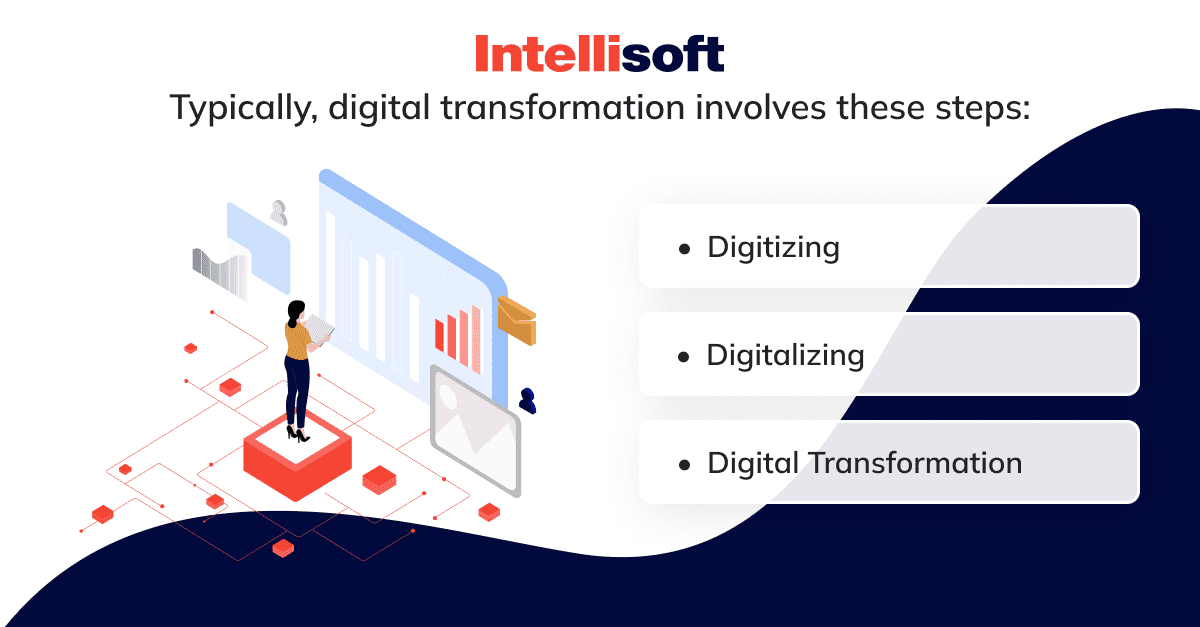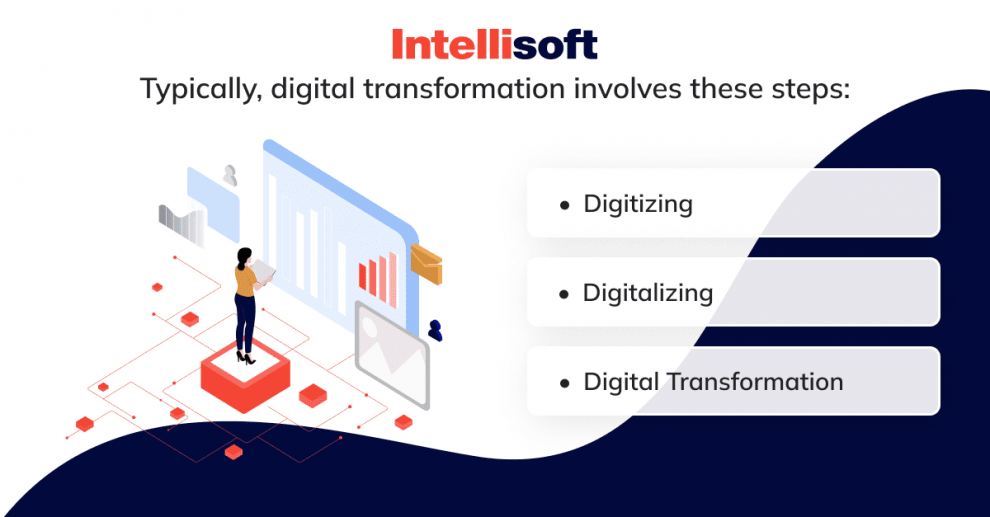
INTRODUCTION
In the ever-evolving landscape of commerce, digital transformation has become imperative for businesses to stay relevant and competitive. Nowhere is this more evident than in e-commerce, where technological advancements continue to reshape the way consumers shop and businesses operate. In this article, we delve into the key trends and strategies driving digital transformation in the American e-commerce market.
OMNICHANNEL EXPERIENCE: BRIDGING THE GAP BETWEEN ONLINE AND OFFLINE
One of the central trends in e-commerce digital transformation is the adoption of omnichannel strategies. Consumers expect a seamless shopping experience across various channels, including websites, mobile apps, social media platforms, and physical stores. Retailers are investing in technologies that enable them to integrate these channels seamlessly, providing customers with consistent messaging, personalized recommendations, and smooth transitions between online and offline touchpoints.
MOBILE-FIRST APPROACH: CATERING TO THE MOBILE-SAVVY CONSUMER
With the proliferation of smartphones and tablets, a mobile-first approach has become essential for e-commerce success. Mobile commerce (m-commerce) now accounts for a significant portion of online sales, prompting businesses to prioritize mobile optimization in their digital strategies. This includes developing responsive websites, optimizing mobile apps for performance and usability, and implementing mobile-friendly payment options to streamline the checkout process for on-the-go consumers.
PERSONALIZATION AND AI-DRIVEN RECOMMENDATIONS
Personalization has emerged as a key differentiator in e-commerce, allowing businesses to tailor product recommendations, promotions, and marketing messages to individual customer preferences and behavior. Artificial intelligence (AI) and machine learning algorithms analyze vast amounts of customer data to deliver highly targeted and relevant experiences. By leveraging AI-driven insights, e-commerce companies can increase customer engagement, drive conversions, and foster long-term loyalty.
VOICE COMMERCE: THE RISE OF VOICE-ENABLED SHOPPING
Voice commerce, enabled by virtual assistants such as Amazon Alexa, Google Assistant, and Apple Siri, is gaining traction as a convenient and intuitive way for consumers to shop online. Voice-activated devices allow users to search for products, place orders, and track deliveries using natural language commands. E-commerce businesses are integrating voice commerce capabilities into their platforms, optimizing product listings and checkout processes for voice search, and exploring voice-driven marketing strategies to engage with customers effectively.
DATA-DRIVEN INSIGHTS AND ANALYTICS
Data-driven insights and analytics play a crucial role in e-commerce digital transformation, enabling businesses to understand customer behavior, track performance metrics, and make informed decisions. Advanced analytics tools provide real-time visibility into key performance indicators (KPIs), such as website traffic, conversion rates, and customer lifetime value. By leveraging actionable insights derived from data analysis, e-commerce companies can optimize marketing campaigns, refine product offerings, and enhance the overall customer experience.
BLOCKCHAIN TECHNOLOGY: SECURING TRANSACTIONS AND ENHANCING TRUST
Blockchain technology has the potential to revolutionize e-commerce by providing secure, transparent, and tamper-resistant transactional capabilities. Blockchain-based platforms enable peer-to-peer transactions, eliminate intermediaries, and enhance trust and transparency in supply chains. E-commerce businesses are exploring blockchain solutions for various use cases, including payment processing, supply chain management, and digital asset management, to streamline operations and mitigate fraud risks.
SOCIAL COMMERCE: INTEGRATING SHOPPING INTO SOCIAL MEDIA PLATFORMS
Social commerce, the integration of e-commerce capabilities into social media platforms, is gaining momentum as a powerful sales channel for e-commerce businesses. Platforms like Facebook, Instagram, and Pinterest offer features that allow users to discover, browse, and purchase products directly within their social feeds. By leveraging social commerce, e-commerce companies can reach a broader audience, tap into social influencers’ networks, and capitalize on user-generated content to drive sales and brand engagement.
SUSTAINABILITY AND ETHICAL CONSIDERATIONS
With growing awareness of environmental and social issues, consumers are increasingly prioritizing sustainability and ethical considerations when making purchasing decisions. E-commerce businesses are responding by implementing eco-friendly practices, sourcing ethically-produced products, and transparently communicating their corporate social responsibility initiatives. By aligning with consumer values and demonstrating commitment to sustainability, e-commerce companies can build trust, loyalty, and brand equity.
CONCLUSION
In conclusion, digital transformation is reshaping the e-commerce landscape in the United States, driving innovation, and revolutionizing the way businesses engage with customers. By embracing key trends such as omnichannel experience, mobile optimization, personalization, and emerging technologies like voice commerce and blockchain, e-commerce companies can position themselves for success in an increasingly competitive market. With a strategic focus on leveraging data-driven insights, fostering customer-centricity, and addressing sustainability and ethical considerations, businesses can unlock new opportunities for growth and differentiation in the digital era of retail.















